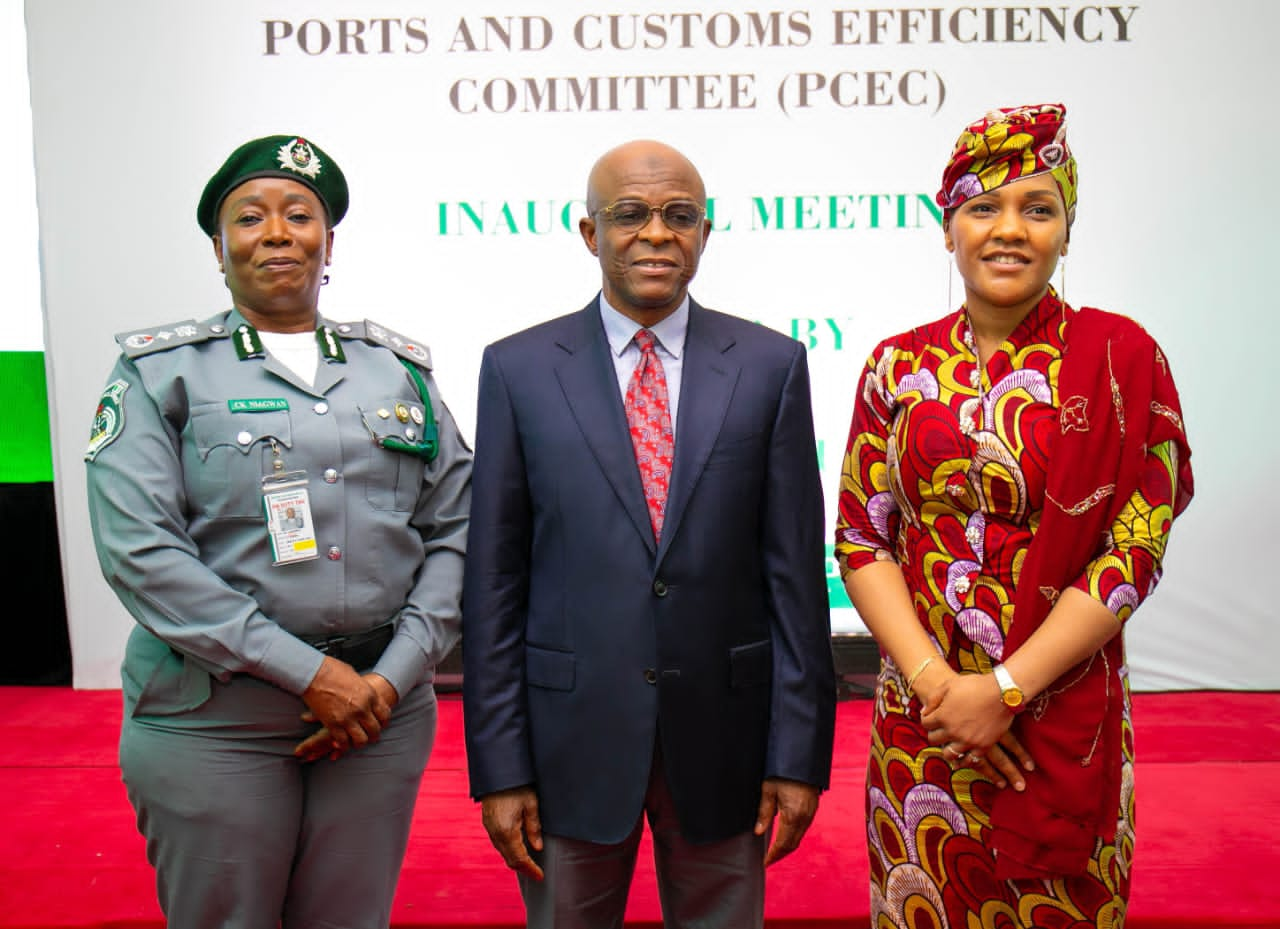The Presidential Enabling Business Environment Council (PEBEC), in collaboration with the Nigerian Ports Authority (NPA), has inaugurated the Ports and Customs Efficiency Committee (PCEC) to streamline operations at Nigerian seaports and remove bureaucratic bottlenecks hindering trade.
The launch took place Thursday at the NPA Headquarters in Marina, Lagos.
Director General, PEBEC, Princess Zahrah Mustaphar Audu, who represented Vice President Shettima Kashim, said the committee is a strategic effort to enhance port efficiency through collaboration among public and private sector stakeholders.
“The PCEC is a high-impact, action-oriented committee tasked with sustainable service delivery improvements at our ports,” she said. “It brings together agencies like NPA, Nigerian Customs Service, terminal operators, shipping companies, freight forwarders, exporters, manufacturers, and policymakers.”
Audu emphasized the committee’s role in driving reform implementation rather than just policy formation.
“Since 2016, PEBEC has led over 200 reforms. Now, the focus must shift to execution and practical outcomes,” she stated.
She highlighted the economic toll of inefficiencies in the maritime sector: “Every day of delay costs Nigeria jobs, revenue, and investment. PCEC is here to change that narrative.”
Managing Director, Nigerian Ports Authority (NPA), Dr. Abubakar Dantsoho, outlined four critical pillars for port reform: infrastructure, equipment, technology, and human capacity.
“Apapa and Tin Can Island Ports, built nearly a century ago, are overdue for major rehabilitation,” he said, adding that recent government approvals for reconstruction will increase berth depth and cargo handling capabilities.
Bello-Koko announced NPA’s collaboration with the International Maritime Organization (IMO) to deploy the Port Community System (PCS), a key component of the National Single Window platform that will digitize and streamline port operations.
He also noted ongoing efforts to upgrade pilot training and technical skills to meet global standards, while stressing the need for cross-agency cooperation: “NPA alone cannot achieve efficiency; synergy across all players is critical.”
Comptroller General, Nigeria Customs Service, Adewale Adeniyi, represented by Deputy Comptroller General, Tariff and Trade, Caroline Niagwan, stressed that revitalizing ports and customs procedures is vital to Nigeria’s trade competitiveness, especially under the African Continental Free Trade Agreement (AfCFTA).
He called for public-private partnerships to bridge the infrastructure gap and outlined key issues affecting efficiency, including congestion, outdated equipment, fragmented clearance processes, and regulatory overlaps.
To address these, Adeniyi proposed measures such as enforcing NPA’s eto electronic call-up system, accelerating road repairs around ports, upgrading cargo handling tools, and implementing the National Single Window for unified documentation.
He also advocated for regulatory clarity among agencies like Customs, NAFDAC, and SON, as well as stronger anti-corruption efforts through e-payment systems and whistleblower protection.
“Stakeholder engagement must be ongoing and include all operational levels, not just leadership. Efficiency on paper means nothing if it doesn’t reflect at the ground level,” he concluded.
